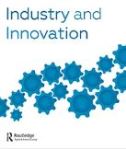The UN Sustainable Development Goals (SDGs) are ubiquitous these days, and the SDG Business Forum (2017) recognized businesses’ vital role in delivering on the promise of sustainable and inclusive development. However, there are still many unanswered questions about approaching sustainability in entrepreneurship and small and medium-sized enterprises (SMEs). To become sustainable, entrepreneurs and SMEs need to consider social and environmental aspects in their business operations, next to being financially sound. Over the years, research on sustainability in businesses has moved from an end-of-life focus, looking at technical solutions for material recycling, to reducing resources throughout the life cycle of products and services. There has also been a shift towards internal managerial issues related to products, services, technologies, business, organizational models, external relational challenges, and sustainability performance (Cillo et al., 2019). In addition, sustainability in entrepreneurship is an emerging and fast-growing research area (Hummels & Argyrou, 2021; Shepherd & Patzelt, 2011). Recent research (Terán-Yépez et al., 2020) indicates several topics that need further exploration, including interdisciplinary collaboration for sustainability, learning for sustainability, and the integration of sustainability in entrepreneurship and SMEs.
Interdisciplinary Collaboration for Sustainability
Sustainability-related problems are multifaceted ‘wicked problems’ that are difficult to solve due to their complicated interdependencies (Pryshlakivsky & Searcy, 2013). Therefore, varied perspectives, knowledge from different fields, and skills are needed to shed light on a broad range of aspects of the problems. Interdisciplinary approaches are thus key to sustainable development. However, interdisciplinarity does not simply happen through a mingling of disciplines or various perspectives. It requires well-functioning dynamics, methods, and processes, allowing teams and organizations to collaborate efficiently and, preferably, excellently (Koria et al., 2011). Next to interdisciplinarity, sustainable development requires explicit attention to the complex intertwining of social, economic, and ecological issues inherent in such challenges.
Learning for Sustainability
Sustainability challenges require generic and specific knowledge, skills, and attitudes – competencies for sustainable development and entrepreneurship –to tackle future complex sustainability challenges (UNESCO, 2018; Ploum et al., 2018). Higher education plays a significant role in educating these future change agents (Zhou et al., 2020). Several entrepreneurship education approaches enable universities to educate change agents in all disciplines (Aadland and Aaboen, 2020; Neergård et al., forthcoming). However, there is a need for additional theoretical and empirical insights on which and how learning philosophies and pedagogical theories support sustainability and the role that curricular and extra-curricular sustainability initiatives play in moving entrepreneurial universities towards a sustainable transition.
The Integration of Sustainability in Entrepreneurship and SMEs
There is agreement on the need for a transition towards sustainability in entrepreneurship and SMEs. However, the route to take is not as straightforward. Research questions arise related to the shift from traditional to sustainable business models and which methods and practices are available for entrepreneurs and SMEs that support this process (Tsvetkova et al., 2020). Further, a critical perspective is needed on the Nordic approach and how this approach supports or hinders the transition towards sustainability in entrepreneurship and SMEs (Ali et al., 2016). Lastly, it is also necessary to include the social dimension addressing processes of good work, organized well-being, fairness, inclusion, empowerment, and engagement (Hauff & Rastetter, 2021; Edmondson, 2019).
This special issue provides a forum for presenting and discussing both empirical and conceptual research that focuses on sustainability in entrepreneurship and SMEs. We encourage papers inquiring about the following themes (but not limited to):
Interdisciplinary collaboration for sustainability
- Co-creation for sustainability
- Moral and ethical issues in interdisciplinary teamwork for sustainability
- Virtual teamwork
- Sustainability in SME networks
- Entrepreneurial ecosystem for sustainability
Learning for sustainability
- Sustainability in entrepreneurship education
- Competences for sustainable entrepreneurship
- Collaborative and project-based learning for sustainability
- Learning philosophies and pedagogical theories that support sustainability
- Curricular and extra-curricular sustainability initiatives in entrepreneurial universities
The integration of sustainability in entrepreneurship and SMEs
- Methods for sustainable innovation and entrepreneurship
- Sustainability practices in SMEs and their internal and external drivers
- The Nordic approach toward sustainability
- The transition from traditional to sustainable business models
- Socially sustainable work practices for learning, innovation, and well-being
Full papers for this special issue of management revue – Socio-Economic Studies must be submitted by 31 August 2022. All contributions will be subject to double-blind review. Papers invited to a “revise and resubmit” are due 31 January 2023. The publication is scheduled for issue 4/2023. Please submit your papers electronically via the online submission system using “SI Sustainability in Entrepreneurship and SMEs” as the article section.
The manuscript length should not exceed 9,000 words (excluding references), and the norm should be 30 pages in double-spaced type with margins of about 3 cm (1 inch) on each page.
Guest Editors:
- Elli Verhulst, Norwegian University of Science and Technology (NTNU)
- Lise Aaboen, Norwegian University of Science and Technology (NTNU)
- Simon Jebsen, University of Southern Denmark (SDU)
View the complete CfP here.
Submission Guidelines: here.
Submission deadline (full papers): 31 August 2022.
Expected publication: Issue 4/2023.






